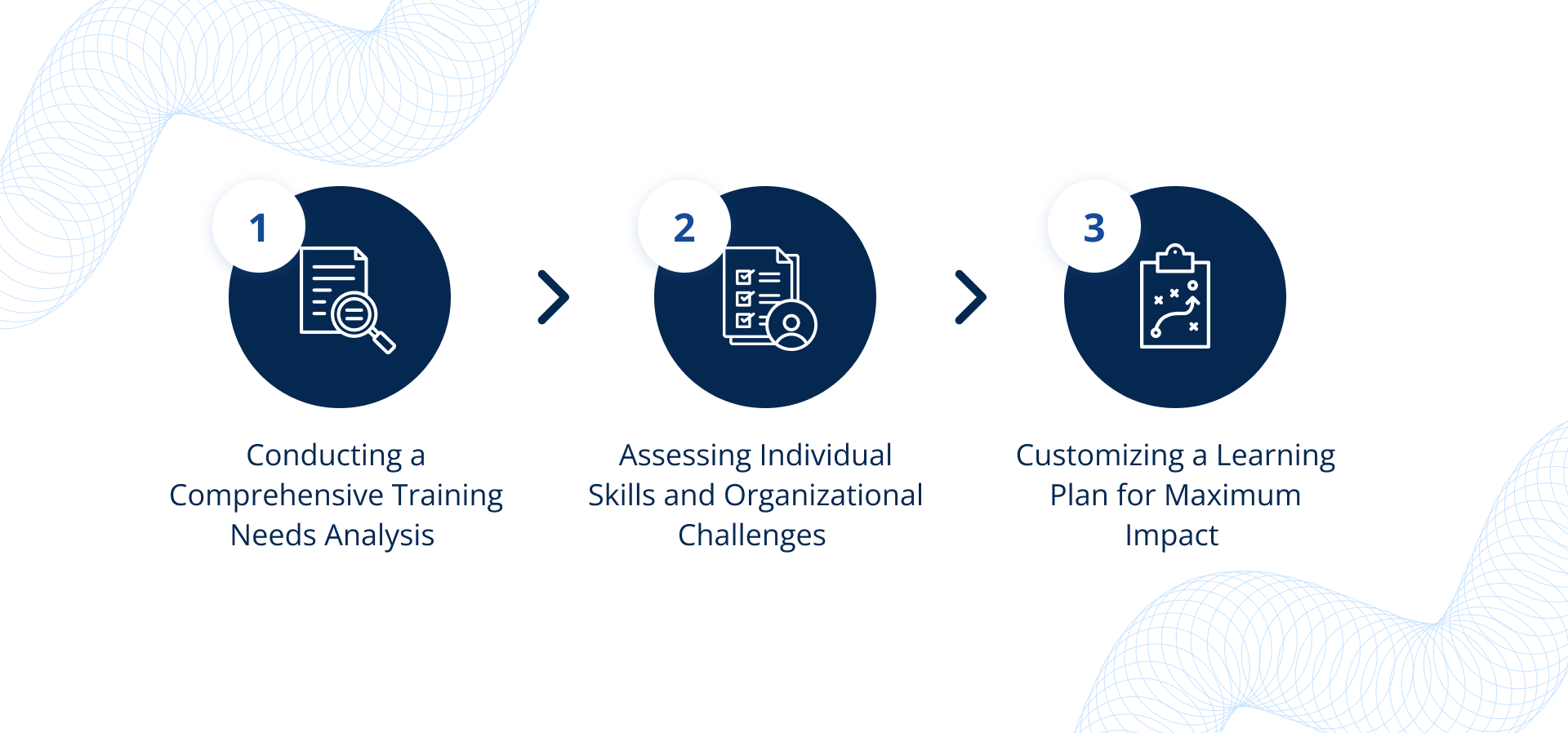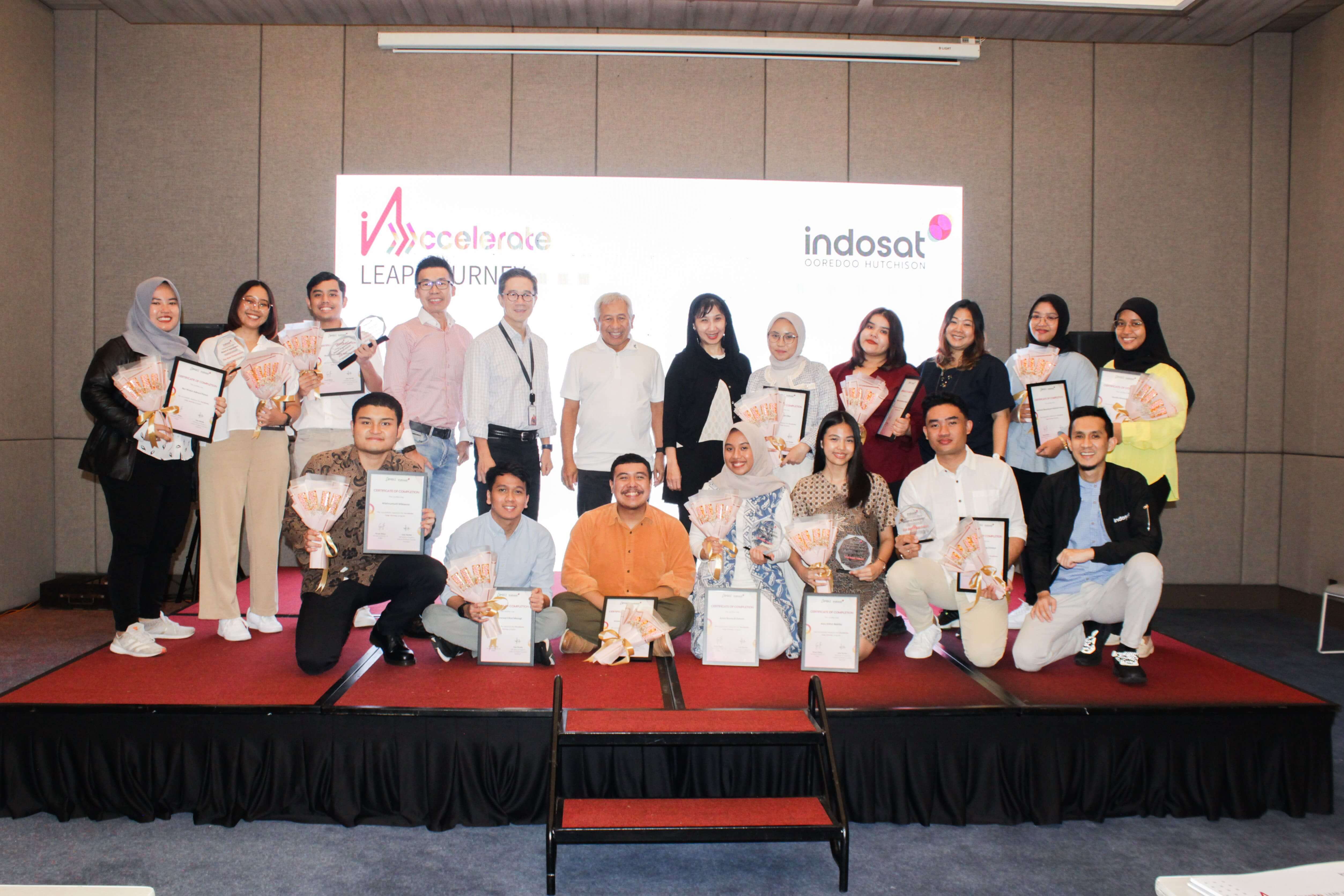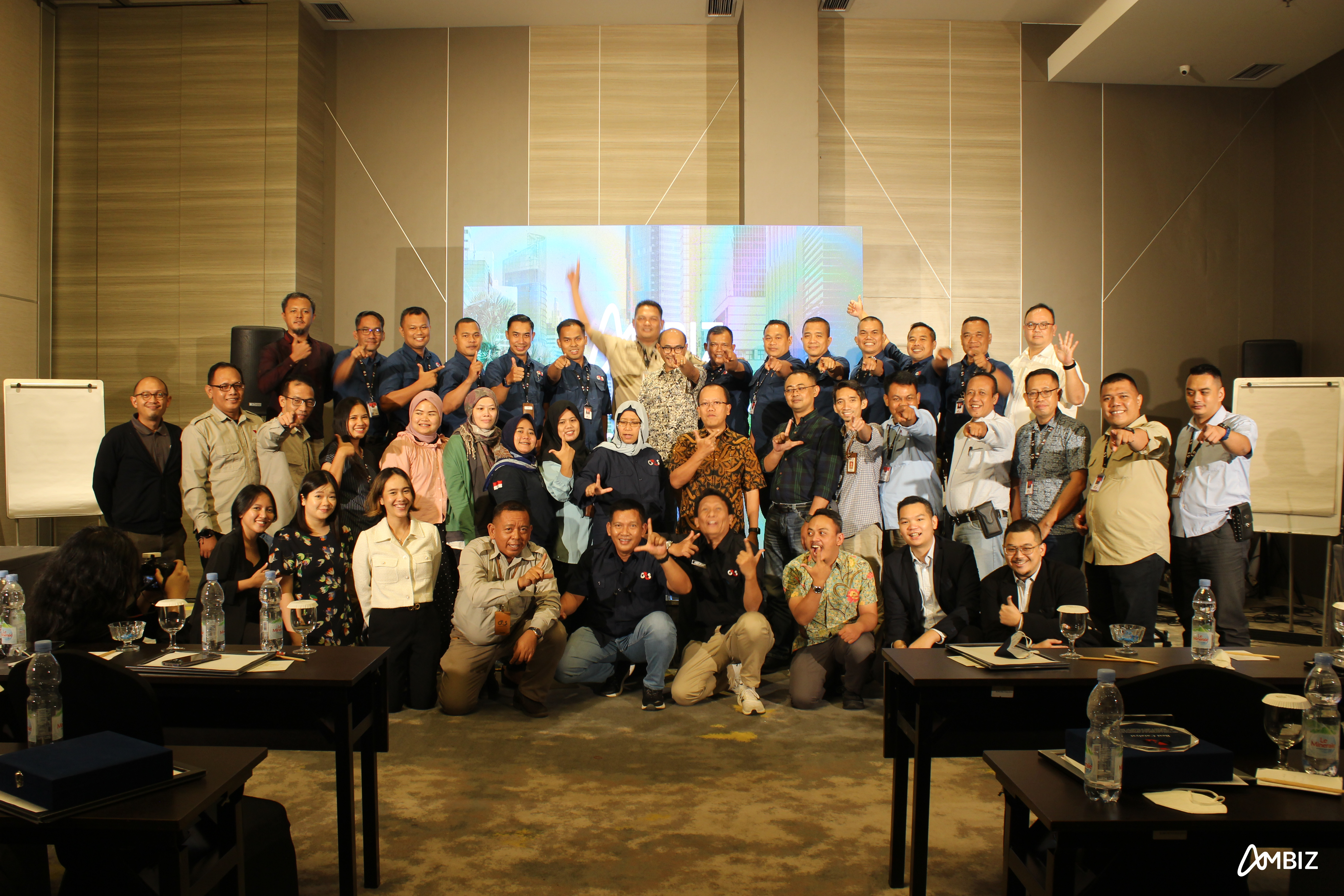AMBIZ
VIEWS
Learning
Initiatives: Empowering Every Employee for Success
Are
you curious about when someone in a company stops receiving learning support? Well, the truth is
that everyone in a company, regardless of their level, can continue to benefit from learning
opportunities. Providing learning support for all employees is highly advantageous for numerous
reasons, such as skill development, employee engagement, adaptability to change, and fostering
collaboration and innovation.
Now,
the challenge lies in ensuring that your learning initiatives yield the desired results and
don't waste valuable resources. So, let's embark on a journey through three essential steps to
develop a successful learning initiative:

Step 1: Conducting a Comprehensive
Training Needs Analysis
Before
diving headfirst into planning the learning program, it's crucial to perform a comprehensive
training needs analysis. Sometimes, problems within an organization may have multiple factors,
and training or upskilling might not be the sole solution. By conducting a root cause analysis
and adopting a "helicopter view" approach, you can identify the underlying causes and determine
if training is the appropriate course of action.
Step 2: Assessing Individual Skills and
Organizational Challenges
When
developing a learning initiative, it's important to consider the required skills at each level
within the company. After all, directors and staff members face different challenges and possess
distinct skill sets. In addition to skills, you should also evaluate the specific problems or
functions within the organization. Your learning initiatives must align with the company's
intended direction, available career paths, and overall strategy to ensure maximum
effectiveness.
Step 3: Customizing a Learning Plan for
Maximum Impact
Every
level, problem, function, and individual within a company may require a tailored learning
approach. By customizing your learning plan to address specific needs, you can achieve the
intended purpose of the initiative. For instance, if you're aiming for high engagement,
incorporating gamification into the learning experience might be a wise choice. On the other
hand, if you prioritize practicality and direct impact, consider implementing a comprehensive
end-to-end credential program.
Remember, providing learning opportunities for all employees is a valuable investment that can
drive growth and success within your organization. By following these three steps and tailoring
your learning initiatives accordingly, you'll be well on your way to creating a thriving
learning culture that benefits everyone.
 CREDENTIALS PROGRAM
CREDENTIALS PROGRAM










